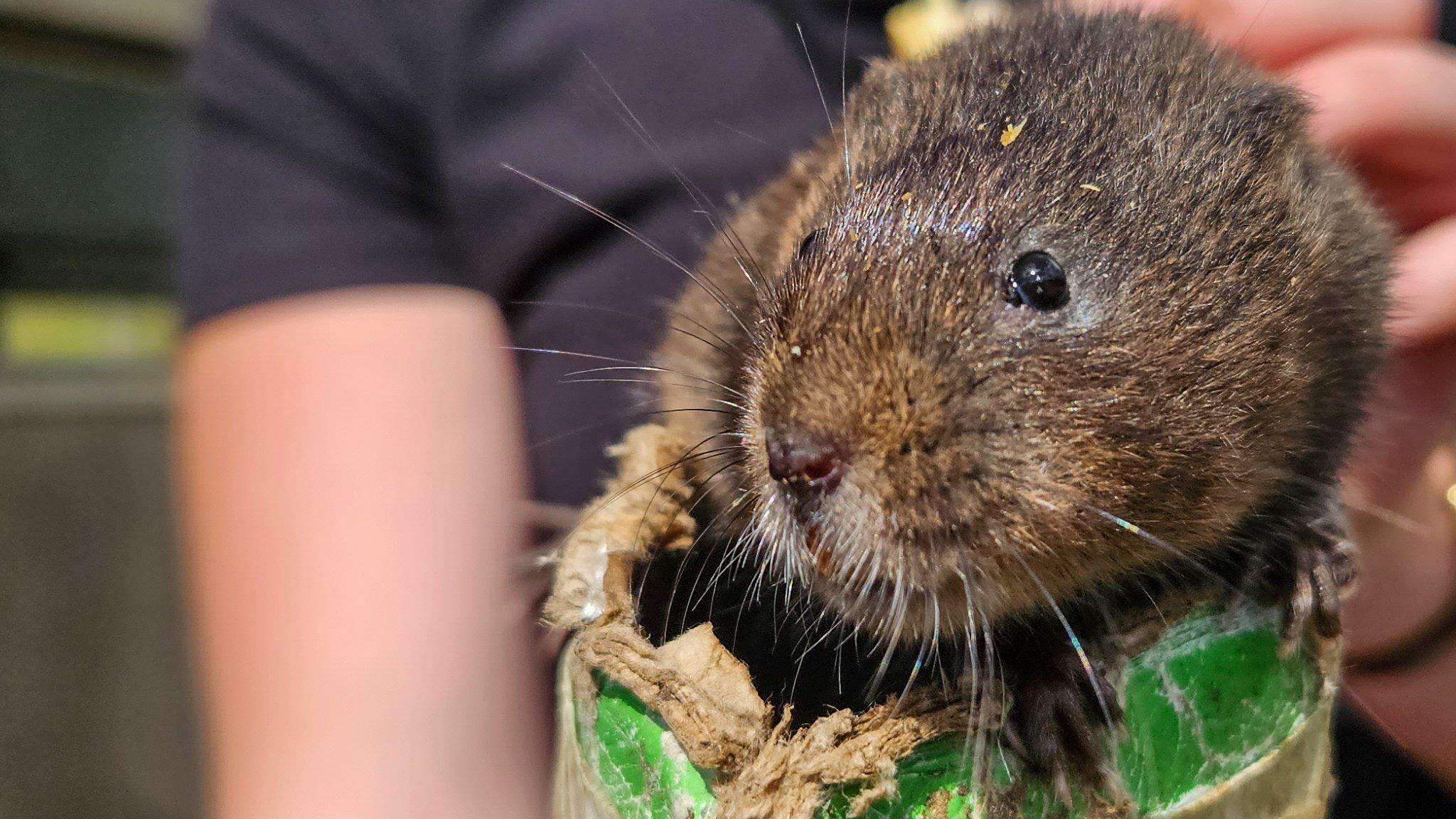Water voles released into Devon river
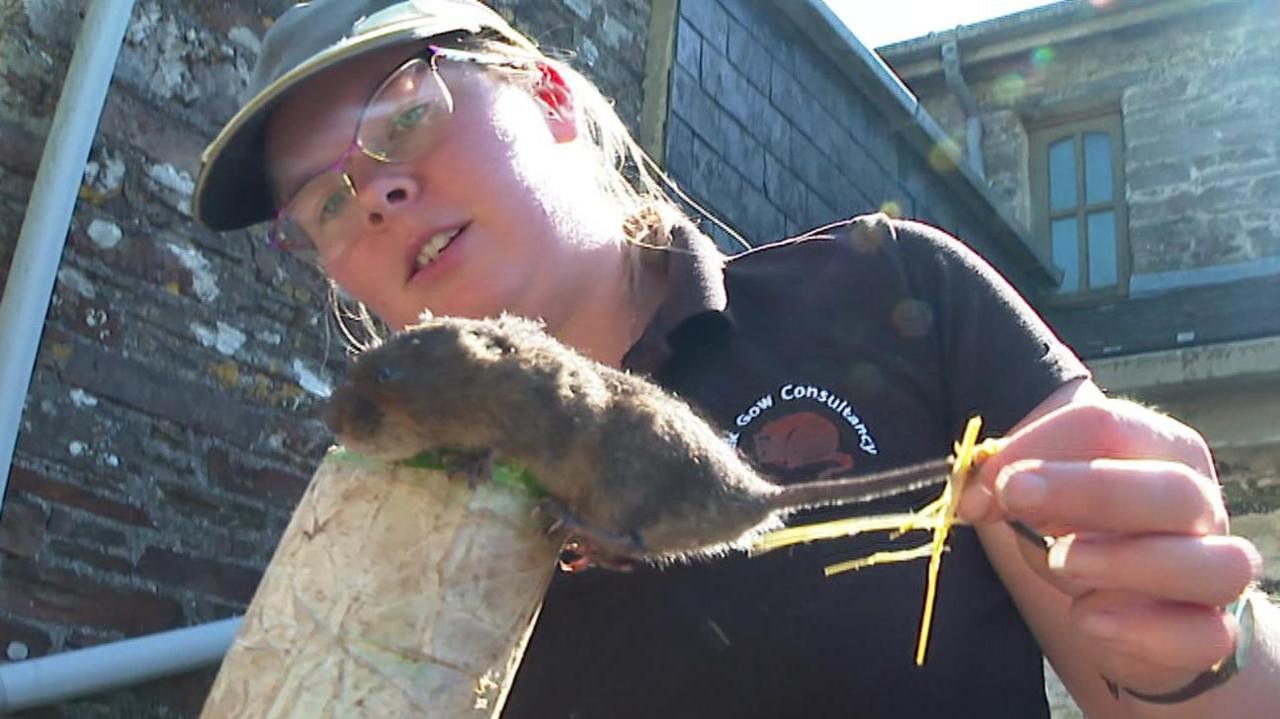
The voles have been bred and released in Devon
At a glance
Hundreds of water voles are being released into a river in south Devon to help stop the species' decline
The initial 200 are being introduced into the River Gara near Dartmouth as part of plans to release 800 over two years
The species has seen its population drop because of habitat loss and being hunted by imported mink
- Published
About 200 water voles are being released into a river in south Devon as part of work to stop the species' national decline.
The voles are being introduced into the River Gara in Blackawton, near Dartmouth, by the Habitat Group.
A small number were directly released on Monday, organisers said, with others being left in cages to make their own way out before the cages were taken away on Saturday.
Project leaders said the release was part of plans to put 800 voles into the Gara over the next two years "to establish a strong, healthy population".
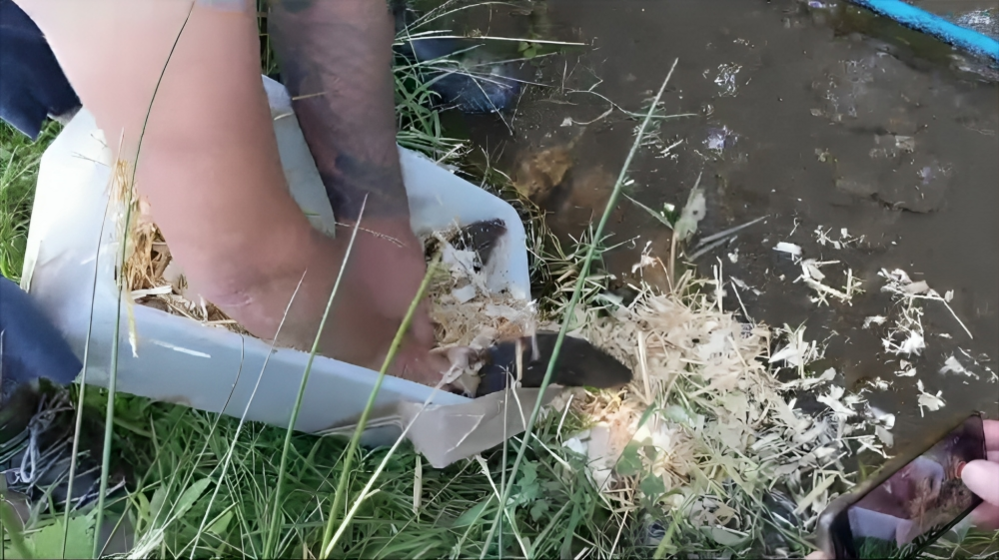
Some voles were released directly, with others being left in cages to make their own way
Water voles can normally be found along rivers.
However, their numbers have fallen over the last century, from eight million to about 132,000, disappearing from 94% of the sites they once called home.
The animals were virtually wiped out because of habitat loss, pollution and the spread of the larger American mink, first brought to Britain in the 1920s to be used to make fur for items such as coat and gloves.
Project member John Nightingale told BBC Radio Devon water voles had been disappearing nationally "at a huge rate".
He said the area had been monitored to make sure no predatory mink were nearby.
Mr Nightingale said: "We've had mink traps out for the past nine months and we haven't found any, so there's no reason these voles should not survive."
He also said the release site led down to Slapton Ley lake, which was "perfect water vole territory" after getting the animals from a local breeder.
"The first 200 are fat and ready, and ready to come out into the world."
He added: "They have a wonderful effect on the rivers.
"They spend their days nibbling down the vegetation, which then allows wild flowers to come through, and then that attracts pollinators, which attracts little animals to come and feed on the insects."
Follow BBC News South West on Twitter, external, Facebook, external and Instagram, external. Send your story ideas to spotlight@bbc.co.uk, external.
Related internet links
- Published17 August 2023
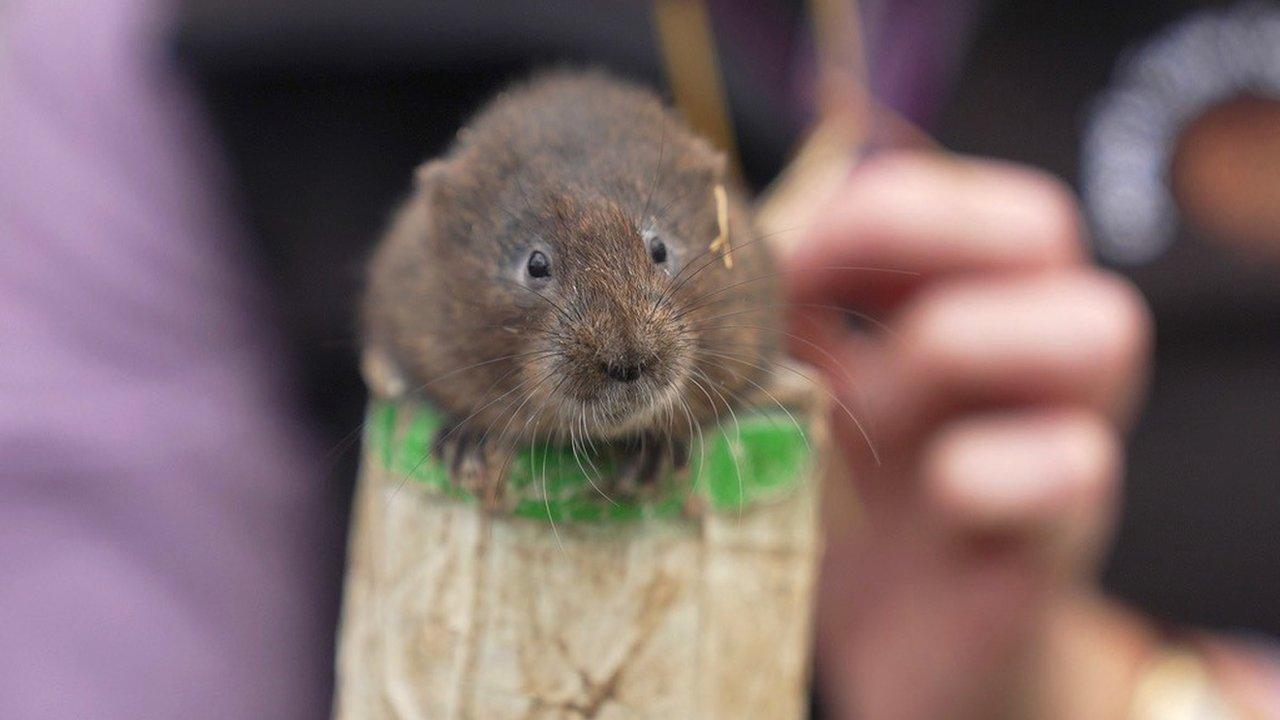
- Published17 April 2023
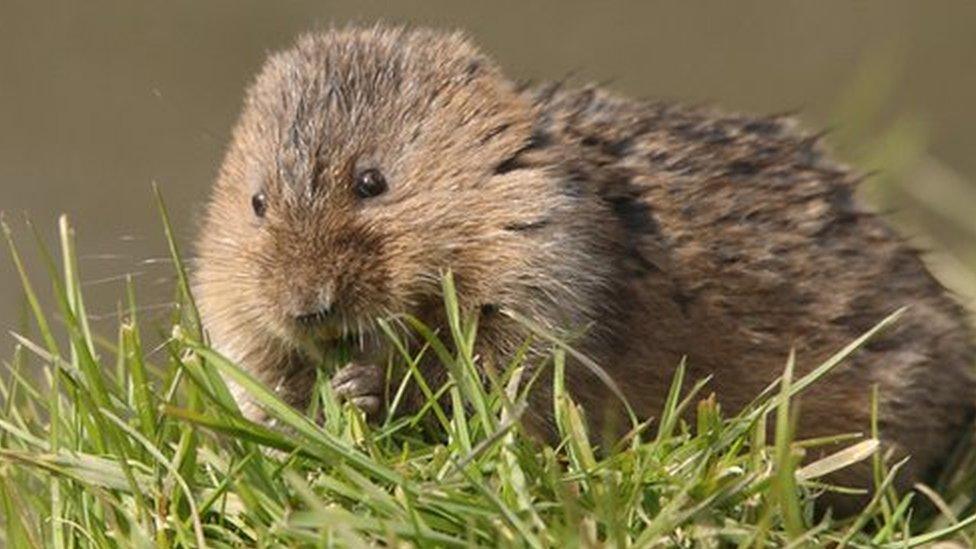
- Published19 August 2023
